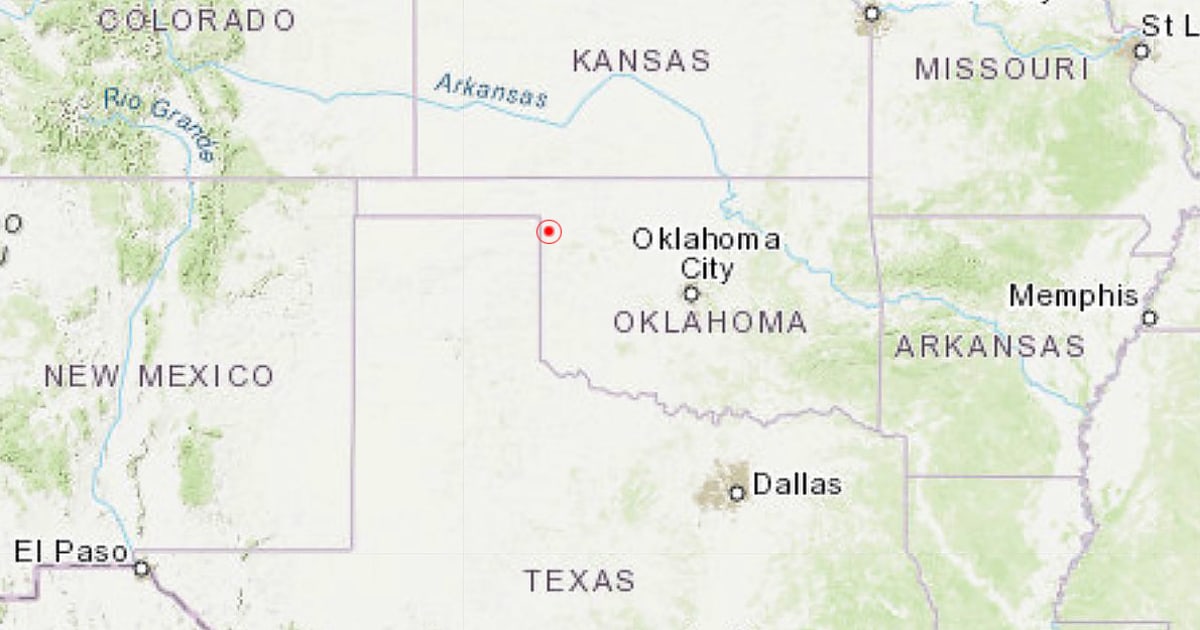
A magnitude 4.1 earthquake struck west of Shattuck, Oklahoma, at around 1:30 p.m. local time on Tuesday, according to the U.S. Geological Survey, also shaking residents in neighboring Kansas and Texas.
Sam Hamilton, Shattuck’s town manager, said there were no immediate reports of damage in the small town of 1,300, roughly 150 miles northwest of Oklahoma City.
“I don’t remember a quake in this area,” Hamilton told NBC News, who said earthquakes were rare in his part of western Oklahoma.
The central part of the state was recently an area of intense seismic activity, thanks in large part to oil and gas drilling. Although the mining technique involving pressurized fluids known as fracking has been blamed for the quakes, the USGS says the wastewater from mining is the prime suspect.
“The majority of earthquakes in Oklahoma are caused by the industrial practice known as ‘wastewater disposal,'” USGS writes.
“Wastewater disposal is a separate process in which fluid waste from oil and gas production is injected deep underground far below ground water or drinking water aquifers. In Oklahoma over 90% of the wastewater that is injected is a byproduct of oil extraction process and not waste frack fluid.”
From 2014 to 2017 the state had more magnitude 3 and larger temblors than famously earthquake-prone California, USGS reported.
However, in part due to attention to the quakes caused by wastewater disposal, wells have closed and the resulting seismic activity has reduced.
Hamilton said he was aware of no new fracking activity in the area.
CORRECTION (May 25, 2021, 6:40 p.m. ET): A previous version of this article misstated which states felt the earthquake. It was felt in Oklahoma, Texas and Kansas, not Oklahoma, Texas and Nebraska.
Source: | This article originally belongs to Nbcnews.com










